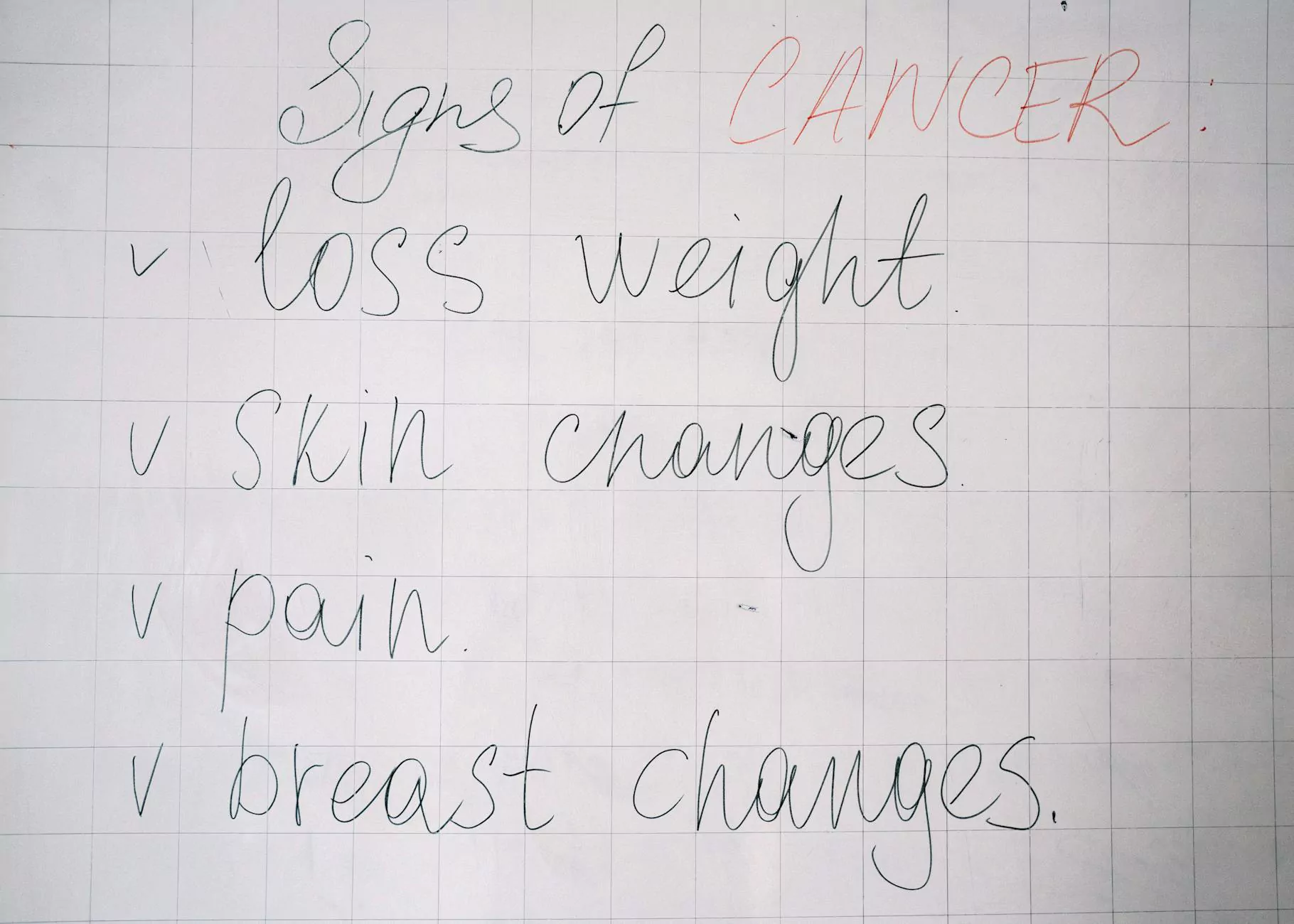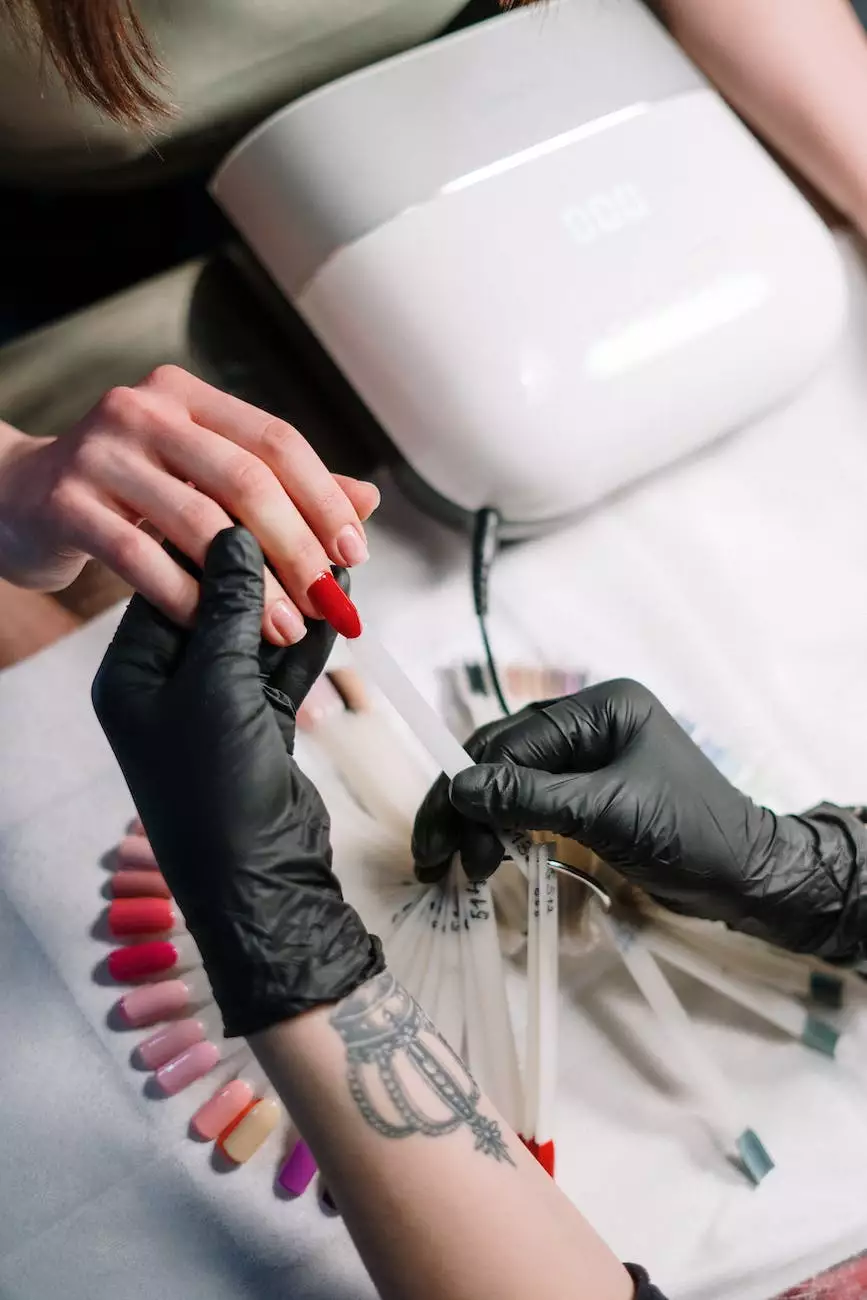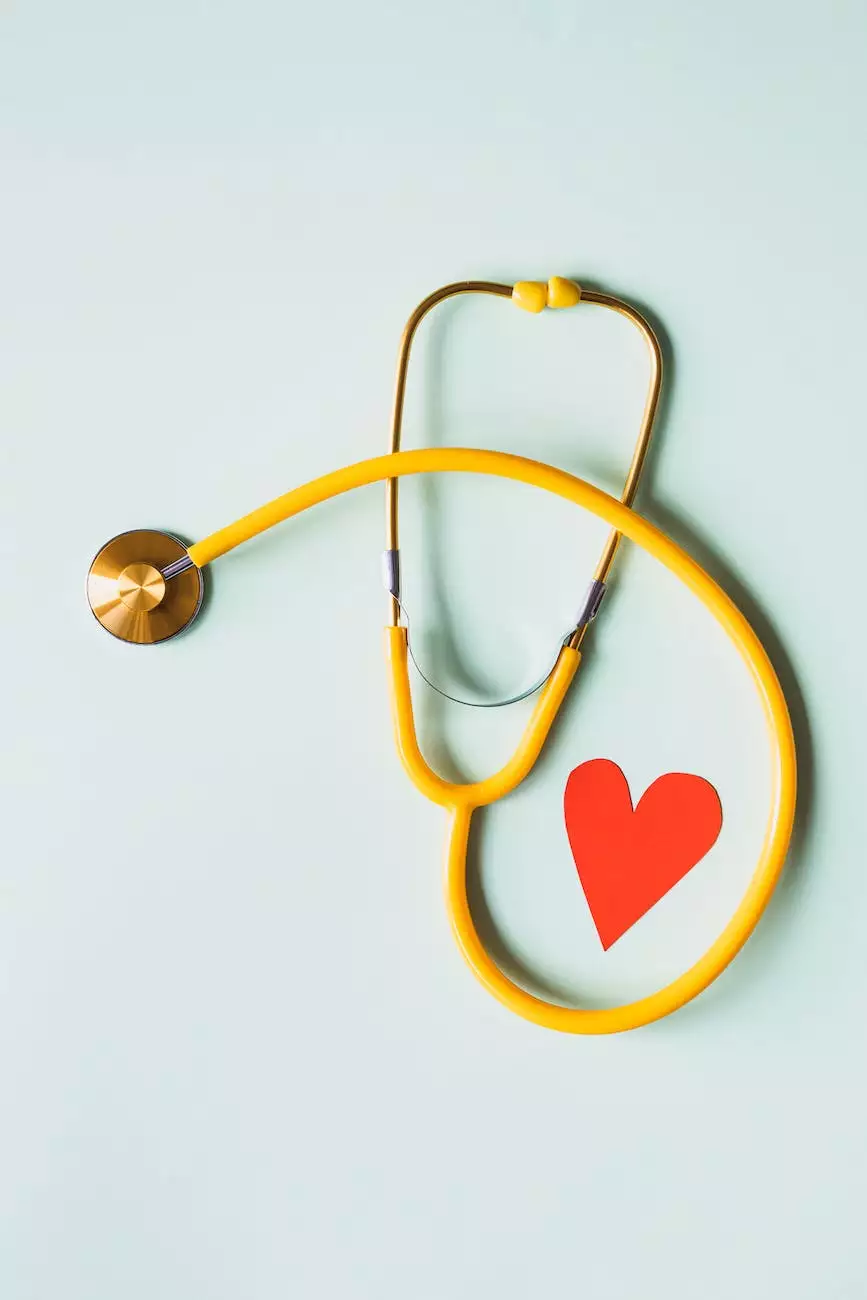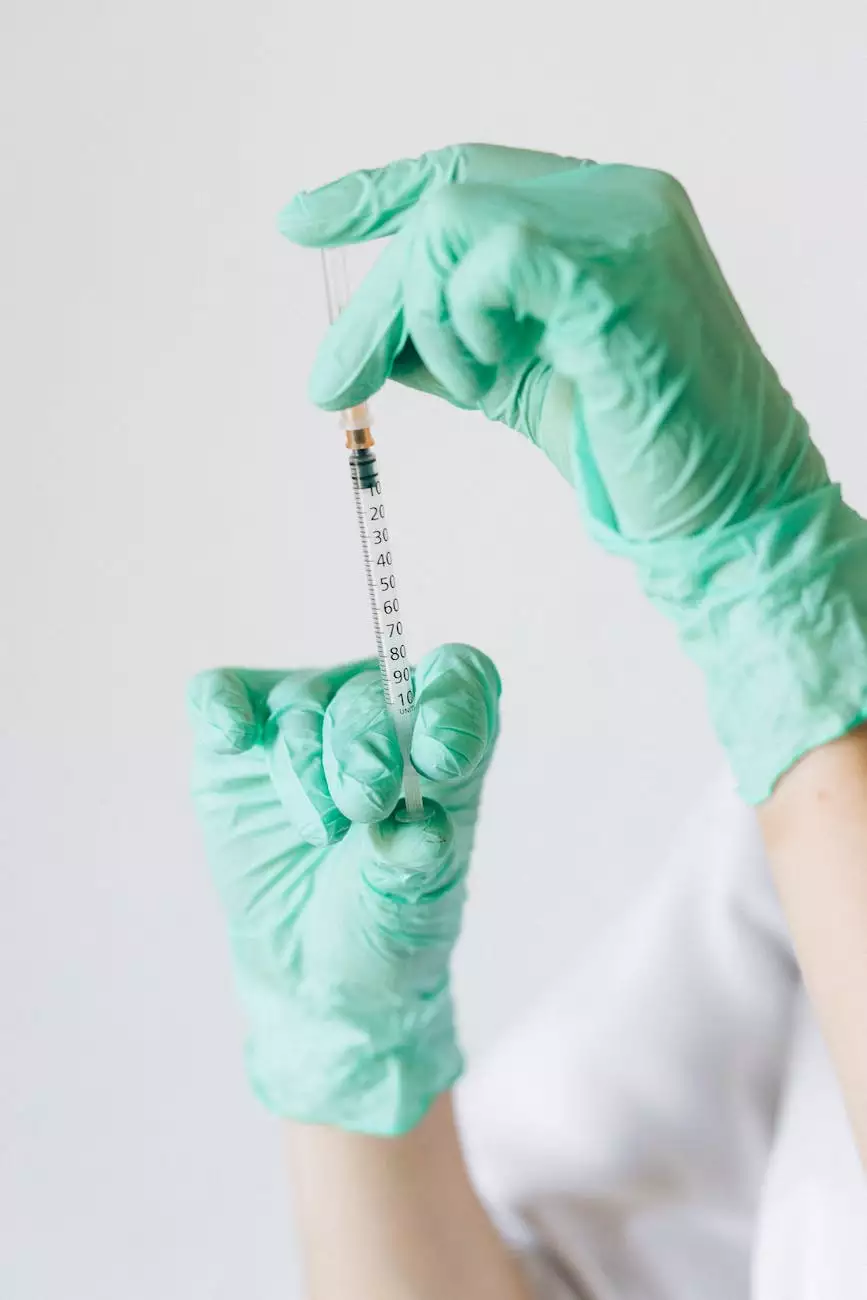Oral Cancer - How to spot Signs and Symptoms
Cancer Treatment Team
Welcome to Sibel Blau's comprehensive guide on oral cancer. In this article, we will explore the various signs and symptoms of oral cancer that you need to be aware of. Detecting oral cancer early can significantly improve prognosis, making it crucial for everyone to understand the red flags and seek timely medical attention.
Understanding Oral Cancer
Oral cancer refers to the abnormal growth of cancer cells in any part of the mouth, including the lips, tongue, gums, throat, and tonsils. It can affect individuals of any age, although certain risk factors such as tobacco and alcohol use, prolonged sun exposure, and a family history of oral cancer can increase the likelihood of developing the disease.
Recognizing Signs and Symptoms
Early detection of oral cancer can greatly increase the chances of successful treatment. Here are some of the most common signs and symptoms to watch out for:
- Lesions or sores: Non-healing sores or ulcers that persist for more than two weeks can be an indication of oral cancer. These may appear as red or white patches, often with a rough or irregular surface.
- Persistent pain: Chronic pain or discomfort in the mouth, throat, or ears that doesn't go away should be evaluated by a healthcare professional, as it can be a symptom of oral cancer.
- Difficulty swallowing: Trouble or pain while swallowing can be a sign of an underlying issue, including oral cancer. It's essential to seek medical attention for proper diagnosis and treatment.
- Changes in speech: Hoarseness, slurred speech, or changes in voice quality that persist over time are potential indicators of oral cancer. If you notice any changes in your speech, it's important to consult a healthcare professional promptly.
- Swollen lymph nodes: Enlarged, firm, or painful lymph nodes in the neck can be a sign that the body is fighting an infection or a more serious condition, such as oral cancer.
- Unexplained weight loss: In some cases, oral cancer may cause unexplained weight loss. If you experience significant weight loss without any apparent reason, it's crucial to consult with a healthcare provider to rule out any serious health issues.
Getting a Diagnosis
If you notice any signs or symptoms that raise concerns about oral cancer, it's important to consult a healthcare professional who specializes in oral health. They will conduct a thorough examination of your mouth and throat, looking for any abnormalities or suspicious areas. In some cases, a biopsy may be performed to confirm or rule out oral cancer definitively.
Prevention and Risk Reduction
While not all cases of oral cancer are preventable, there are steps you can take to reduce your risk and promote good oral health:
- Avoid tobacco products: Smoking and chewing tobacco can significantly increase the risk of developing oral cancer. Quitting smoking and avoiding tobacco products altogether can greatly improve your oral and overall health.
- Limit alcohol consumption: Excessive alcohol consumption is linked to a higher risk of oral cancer. Moderating your alcohol intake or avoiding it altogether can help lower your risk.
- Protect your lips from the sun: Prolonged exposure to the sun's UV rays can increase the risk of lip cancer. When spending time outdoors, use lip balm with SPF and wear a wide-brimmed hat to shield your lips from direct sunlight.
- Maintain good oral hygiene: Regularly brushing your teeth, flossing, and visiting your dentist for routine check-ups can help maintain good oral health. Detecting any changes or abnormalities early on can significantly improve the chances of successful treatment.
- Eat a healthy diet: A well-balanced diet rich in fruits and vegetables can boost your immune system and reduce the risk of developing oral cancer. Avoiding processed foods and adopting a healthy lifestyle can have a positive impact on your overall well-being.
Conclusion
Oral cancer is a serious condition that requires prompt attention. By recognizing the signs and symptoms and taking proactive steps to prevent its occurrence, you can safeguard your oral health and overall well-being. Remember, early detection is key, so be sure to consult a healthcare professional if you have any concerns. Stay informed, take care of your oral health, and prioritize regular check-ups to ensure a happy and healthy life.










